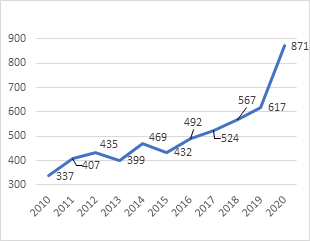A new paper published ONLINE FIRST freely accessible estimates the effects of an increase in free pre-school education in England on child development which were found to be small.
The Global Labor Organization (GLO) is an independent, non-partisan and non-governmental organization that functions as an international network and virtual platform to stimulate global research, debate and collaboration.
Quantity and quality of childcare and children’s educational outcomes
by Jo Blanden, Emilia Del Bono, Kirstine Hansen & Birgitta Rabe
Published ONLINE FIRST 2021: Journal of Population Economics
OPEN ACCESS and PDF.

Author Abstract: Policy-makers wanting to support child development can choose to adjust the quantity or quality of publicly funded universal pre-school. To assess the impact of such changes, we estimate the effects of an increase in free pre-school education in England of about 3.5 months at age 3 on children’s school achievement at age 5. We exploit date-of-birth discontinuities that create variation in the length and starting age of free pre-school using administrative school records linked to nursery characteristics. Estimated effects are small overall, but the impact of the additional term is substantially larger in settings with the highest inspection quality rating but not in settings with highly qualified staff. Estimated effects fade out by age 7.

EiC Report 2020
Journal of Population Economics
Access to the recently published Volume 34, Issue 3, July 2021.
LEAD ARTICLE OF ISSUE 3, 2021:
The safest time to fly: pandemic response in the era of Fox News
by Maxim Ananyev, Michael Poyker and Yuan Tian
OPEN ACCESS: Free Readlink – Download PDF
Ends;

